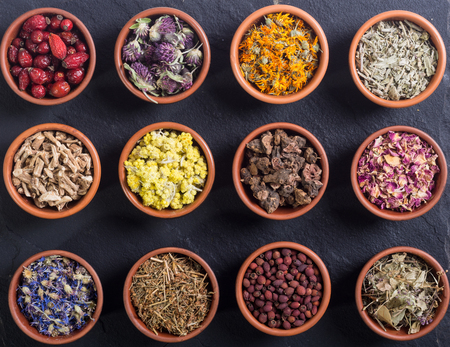Introduction to Indian Herbal Heritage
India has long been celebrated for its rich tradition of using herbs and natural ingredients in daily life, a legacy rooted in Ayurveda and ancient wellness practices. For centuries, families across the country have relied on homegrown remedies—think neem for skin care, tulsi for immunity, or turmeric for healing wounds. This deep connection with nature is not just a thing of the past; even today, Indian households value these ingredients for their efficacy and holistic benefits. In modern times, the personal care and wellness industry in India is experiencing a renaissance as brands tap into this treasure trove of traditional knowledge. By infusing age-old herbal wisdom with contemporary formulations, they are creating products that feel both familiar and innovative. With more Indians seeking natural alternatives over chemical-laden solutions, the relevance of indigenous herbs and botanicals in today’s beauty and wellness routines has never been stronger.
2. Popular Indian Herbs and Their Benefits
India’s rich tradition of Ayurveda has gifted the world with a variety of powerful herbs, many of which are now at the heart of popular beauty and wellness brands. These natural ingredients are not just part of grandma’s home remedies anymore—they’re making their way into modern skincare, haircare, and health products across India. Here’s a closer look at some well-loved Indian herbs and their significance:
| Herb | Main Benefits | Common Uses in Brands |
|---|---|---|
| Neem | Antibacterial, anti-inflammatory, purifies skin | Face washes, soaps, acne treatments |
| Tulsi (Holy Basil) | Rich in antioxidants, detoxifies, soothes skin | Herbal teas, toners, cleansers |
| Amla (Indian Gooseberry) | Packed with Vitamin C, strengthens hair roots, boosts immunity | Hair oils, shampoos, dietary supplements |
| Turmeric (Haldi) | Anti-inflammatory, brightens skin, heals wounds | Face packs, creams, body scrubs |
Neem: Long celebrated in Indian households for its antibacterial properties, neem is a staple in many desi brands’ face washes and soaps. It helps tackle breakouts and leaves the skin feeling fresh—something most Indians swear by during summer heat or after travel.
Tulsi: Whether sipped as tea or applied as an extract in toners, tulsi is known for its ability to fight stress and pollution—very relatable for anyone navigating city life in Mumbai or Delhi. Brands highlight tulsi for its calming effect on both skin and mind.
Amla: Amla’s reputation for promoting thick hair is almost legendary in Indian culture. Hair oils and shampoos often feature amla as a hero ingredient to target hair fall—a common concern thanks to our water quality and weather.
Turmeric: From haldi ceremonies before weddings to your daily besan-haldi face pack at home, turmeric’s role in Indian beauty rituals is iconic. Brands using turmeric are tapping into its time-tested power to heal and brighten—all with that signature golden glow.
The popularity of these herbs goes beyond tradition; Indian consumers today actively seek out products where these ingredients take centre stage. It’s about trust in nature and nostalgia packed into every bottle or jar—something only Indian herbs can truly deliver.

3. Leading Indian Brands Embracing Nature
India’s rich tradition of Ayurveda and natural healing has inspired a new generation of brands to tap into the power of indigenous herbs and natural ingredients. Today, several homegrown companies are gaining recognition for integrating ancient wisdom with modern formulations, offering products that resonate with Indian consumers’ growing preference for holistic wellness.
Showcasing Local Brands Committed to Authenticity
Brands like Forest Essentials, Kama Ayurveda, and Bella Vita Organic have become household names by placing Indian botanicals at the heart of their product ranges. These brands source ingredients such as tulsi, neem, turmeric, ashwagandha, and sandalwood directly from local farms and traditional suppliers. Their focus on transparency, sustainability, and authentic sourcing connects deeply with Indian customers who value purity and trust in what they use on their skin and hair.
Integrating Ayurveda & Natural Remedies in Modern Life
What sets these brands apart is their innovative approach to formulating products inspired by age-old Ayurvedic recipes. For instance, hair oils are crafted with amla and bhringraj for strengthening roots, while face packs blend sandalwood and rose water for a natural glow. Many brands also work with Ayurvedic practitioners to ensure their offerings remain true to classical principles while still fitting into today’s fast-paced lifestyle. This seamless blend of heritage and convenience is why they’re winning hearts across India.
Cultural Relevance & Everyday Wellness
The language and branding of these companies reflect Indian values—words like “nuskha” (remedy), “swasthya” (wellbeing), and “prakriti” (nature) frequently appear in their communications. By celebrating local traditions and promoting self-care rituals rooted in Indian culture, these brands foster a sense of belonging among their users. They encourage Indians not just to consume, but to reconnect with their own heritage through everyday wellness routines powered by nature’s bounty.
4. Everyday Use and Cultural Significance
Indian herbs and natural ingredients are not just confined to product labels—they are woven into the very fabric of daily life across the country. From early morning rituals to festive occasions, these ingredients hold a deep-rooted cultural significance that resonates with millions. For example, turmeric, or “haldi,” is present in every Indian kitchen, used both for cooking and as an essential part of beauty routines and religious ceremonies. Coconut oil, neem, tulsi (holy basil), and sandalwood are other such staples, often passed down through generations as trusted remedies.
Everyday Rituals Featuring Indian Herbs
| Occasion | Herb/Natural Ingredient | Cultural Practice/Use |
|---|---|---|
| Morning Routine | Tulsi (Holy Basil) | Sipping tulsi tea; praying with tulsi leaves for good health |
| Skincare | Sandalwood, Turmeric | Applying sandalwood paste & turmeric masks before festivals or weddings |
| Cooking | Cumin, Coriander, Ginger | Addition to curries & chai for taste and digestive benefits |
| Religious Ceremony | Kumkum (Turmeric powder) | Used for tilak on the forehead during puja rituals |
| Traditional Medicine | Amla, Neem | Consuming amla juice or neem tablets for immunity boost |
Anecdotes from Indian Households
Mumbai-based Priya Shah shares, “My grandmother always insisted on using coconut oil in our hair twice a week—she believed it was the secret to strong, healthy locks. Even today, I follow this ritual with my daughter.” In South India, applying turmeric paste before important life events is considered auspicious and purifying. Many families use homemade face packs made from gram flour (besan) and rose water as a weekly ritual.
The Influence on Brands and Consumer Trust
This deep-rooted cultural connection explains why Indian consumers gravitate towards brands that highlight traditional ingredients. When a brand showcases “with real neem extracts” or “contains pure sandalwood oil,” it instantly evokes trust and nostalgia. Global brands now localise their products for the Indian market by incorporating these cherished elements—making them relevant not only as wellness solutions but also as carriers of tradition.
Conclusion: More Than Just Ingredients
The everyday presence of Indian herbs in homes—from kitchens to prayer rooms—shows that these ingredients are far more than functional components; they are carriers of memory, tradition, and identity. Brands leveraging these elements aren’t just selling products—they’re offering a piece of Indian heritage in every bottle or box.
5. Consumer Insights and Local Preferences
The Indian market has witnessed a significant shift towards embracing natural ingredients and herbal remedies in daily beauty and wellness routines. This change is not merely a trend; it is deeply rooted in the collective consciousness of Indian consumers, who have a long-standing trust in traditional wisdom passed down through generations. Brands using Indian herbs like neem, tulsi, turmeric, and amla are resonating well with consumers because these ingredients are considered safe, effective, and closely tied to holistic health.
Market trends reveal that consumers are actively seeking out products that are free from harsh chemicals and artificial additives. There is a growing preference for transparency in sourcing and manufacturing, with buyers looking for labels that highlight organic, locally sourced, or Ayurvedic certifications. The demand for cruelty-free and eco-friendly packaging further underlines the importance of sustainability. This mindset is particularly strong among young urban Indians, who balance modern aspirations with a desire to reconnect with their roots.
Sustainability now plays a pivotal role in shaping purchasing decisions. Many Indian shoppers see supporting brands that use indigenous herbs as an act of environmental responsibility as well as cultural pride. They want products that benefit both their personal well-being and the planet. As a result, successful homegrown brands are those that can effectively communicate their commitment to ethical sourcing, fair trade practices, and reducing their carbon footprint.
In summary, the rise of brands using Indian herbs and natural ingredients is fuelled by informed consumer choices rooted in tradition, trust in the power of nature, and a conscious effort to support sustainable practices. For many Indians today, choosing herbal products is not just about beauty—its about making mindful decisions that reflect their values.
6. Future of Indian Herb-Based Brands
India’s herbal and natural ingredient-based brands are on the brink of a revolution, fuelled by a rising consciousness towards health, sustainability, and cultural roots. As more Indians seek holistic wellness and clean beauty, the demand for products containing native herbs like neem, tulsi, ashwagandha, and amla is set to skyrocket in both urban metros and smaller towns. Experts predict that the next decade will witness a significant boom in herbal brands, not just within India but also in global markets, as ‘Made in India’ wellness gains recognition for authenticity and effectiveness.
Ancient Wisdom Meets Modern Innovation
The future lies in a seamless blend of age-old Ayurveda with cutting-edge technology. We’re seeing start-ups and legacy brands alike invest in scientific research to validate traditional claims, while using advanced extraction methods to preserve potency. The packaging is getting smarter—eco-friendly materials, QR codes for transparency, and sleek designs that appeal to young Indians who want both heritage and convenience. This fusion ensures that ancient recipes aren’t lost but are instead repackaged for the modern lifestyle.
Personalisation & Digitalisation
Another emerging trend is personalisation: digital platforms and AI-driven quizzes now recommend blends of herbs tailored to individual body types (prakriti), concerns, or even regional climates. With the widespread use of smartphones across Bharat, consumers from Kochi to Kanpur can discover what suits them best—all at their fingertips. This tech-enabled approach makes traditional wellness accessible for Gen Z and millennials, who want quick yet authentic solutions.
Sustainability & Global Influence
Herbal brands are also leading the way in sustainable sourcing—working directly with farmers, supporting organic cultivation, and using biodegradable packaging. This aligns with the growing eco-consciousness among Indian youth. Additionally, Indian herbal brands are making waves internationally; yoga studios in New York stock ashwagandha teas while Londoners shop for turmeric serums. As Indian diaspora spreads its roots worldwide, so too does its trust in homegrown remedies.
Looking Ahead
The future is bright: herbal brands will continue to innovate by blending tradition with modernity. Expect to see more collaborations between Ayurveda doctors and cosmetic chemists, more transparency about sourcing, and a strong push towards quality certifications like AYUSH or USDA Organic. Ultimately, Indian herb-based brands are poised not only to meet domestic needs but also to shape global wellness trends—rooted deeply in Indian soil yet reaching out to the world.

